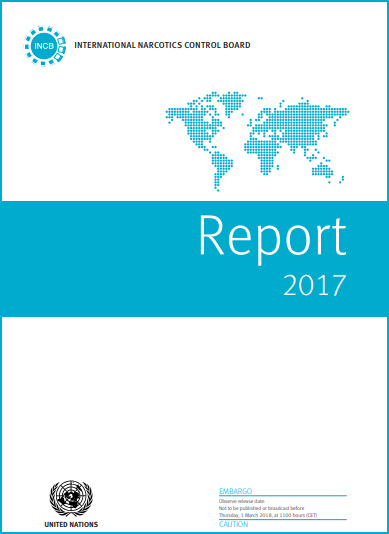
Even where treatment is available, it is often of poor quality and may not be delivered in accordance with international standards, the UN information center (UNIC) in Tehran quoted the report as saying.
To compound the situation, around the world individuals who use drugs experience stigma. This stigmatization not only seriously hinders their opportunities and access to treatment, but also affects their prospects for social reintegration.
Treatment services often do not take into account special needs
The Annual Report calls on Governments to do more for the treatment, rehabilitation, and reintegration of people with drug use disorders, paying particular attention to special populations. The Report notes that various groups of people, including women or socially marginalized individuals, such as migrants and refugees, often do not have access to treatment services that take into account their special needs.
INCB President Dr. Viroj Sumyai said: “It is critical for Governments to protect and advance the rights of all persons with drug use disorders. Under the international drug control conventions, all States are required to take all practicable measures for the prevention of the use of substances as well as early identification, treatment, education, aftercare, rehabilitation and social reintegration of those affected.”
Drug dependence treatment is an element of the right to health
In this year’s Annual Report, the Board emphasizes that access to drug dependence treatment is to be seen as an element of the right to health.
Reducing the demand for drugs involves two overlapping but distinct approaches: the first is preventing people from starting to use drugs and the second is treating and rehabilitating people with drug use disorders. In this context, INCB calls on Governments to give due regard to adopting strategies that address drug abuse, focusing on both prevention and on treatment and rehabilitation.
Seventieth anniversary of the Universal Declaration of Human Rights
The year 2018 marks several anniversaries, including the seventieth anniversary of the adoption of the Universal Declaration of Human Rights in 1948, the twenty-fifth anniversary of the Vienna Declaration and Programme of Action adopted by the World Conference on Human Rights in 1993 and the thirtieth anniversary of the adoption of the United Nations Convention against Illicit Traffic in Narcotic Drugs and Psychotropic Substances of 1988.
In this context, INCB once again calls on countries to ensure that any drug control measures are in full compliance with international human rights standards and norms. This includes protecting and guaranteeing the right to health, the rights of alleged drug offenders, and drug users and ensuring proportional responses in dealing with drug offences, including abolishing the death penalty for drug-related offences. The Board also reiterates its strong condemnation of extrajudicial responses to drug-related criminality.
Addressing the “global pain divide”
Also, as part of ensuring access to health services, INCB emphasizes the urgent need to address the “global pain divide” and tackle the global gap in access to controlled narcotic drugs and psychotropic substances for medical and scientific purposes. This disparity disproportionately impacts low- and middle-income countries around the world where access to narcotic drugs and psychotropic substances is inadequate.
The Board stresses that States must take urgent action to address this imbalance by removing legal and policy barriers that prevent access to medicines and, above all, by raising awareness and building capacity among health-care professionals and relevant country authorities. This includes also ensuring access to medicines needed for the treatment of drug dependence. Undue restrictions on providing treatment that use controlled medications are contrary to the principles enshrined in the right to health.
Non-medical cannabis legislation violates international obligations concerning the legalization of cannabis for non-medical purposes, INCB once again emphasizes that such use would be contrary to the international drug control conventions. Limiting the use of controlled substances to medical and scientific purposes is a fundamental principle of the international drug control treaties to which no exception is possible.
Sustained international support for Afghanistan
The Board also calls on the international community to reprioritize its support for Afghanistan in the face of a concerning drug control situation in the country. Efforts to stabilize the country will not be sustainable without also effectively countering the nation’s illicit drug economy. The Board reiterates to the international community that drug control is a cross-cutting issue. Unless local, national, regional and international efforts to address this challenge are effectively pursued, poverty, insurgency, terrorism and obstacles to development will remain unaddressed.
9156**2050
Follow us on Twitter @IrnaEnglish
 solhkhabar | Peace International News Agency Peace International News Agency , Peace News , International Agency News of Peace
solhkhabar | Peace International News Agency Peace International News Agency , Peace News , International Agency News of Peace